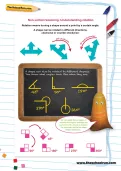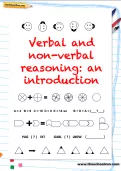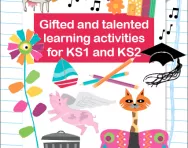Important update from TheSchoolRun
For the past 13 years, TheSchoolRun has been run by a small team of mums working from home, dedicated to providing quality educational resources to primary school parents. Unfortunately, rising supplier costs and falling revenue have made it impossible for us to continue operating, and we’ve had to make the difficult decision to close. The good news: We’ve arranged for another educational provider to take over many of our resources. These will be hosted on a new portal, where the content will be updated and expanded to support your child’s learning.
What this means for subscribers:
- Your subscription is still active, and for now, you can keep using the website as normal — just log in with your usual details to access all our articles and resources*.
- In a few months, all resources will move to the new portal. You’ll continue to have access there until your subscription ends. We’ll send you full details nearer the time.
- As a thank you for your support, we’ll also be sending you 16 primary school eBooks (worth £108.84) to download and keep.
A few changes to be aware of:
- The Learning Journey weekly email has ended, but your child’s plan will still be updated on your dashboard each Monday. Just log in to see the recommended worksheets.
- The 11+ weekly emails have now ended. We sent you all the remaining emails in the series at the end of March — please check your inbox (and spam folder) if you haven’t seen them. You can also follow the full programme here: 11+ Learning Journey.
If you have any questions, please contact us at enquiries@theschoolrun.com. Thank you for being part of our journey it’s been a privilege to support your family’s learning.
*If you need to reset your password, it will still work as usual. Please check your spam folder if the reset email doesn’t appear in your inbox.
Applying for scholarships and bursaries

Many of us harbour dreams of our children going to a private school, whether at primary (pre-prep/prep) or secondary (senior/high) school level. But with day school fees now on average £15,000 per year, and boarding fees double that amount, the cost is often prohibitive.
A scholarship or bursary, however, could open the door to an independent education for your child. Good schools want to attract the most able pupils, and most offer some sort of financial assistance to gifted children, whose parents wouldn’t be able to afford the fees. A third of children at private schools receive some form of financial assistance.
Most scholarships and bursaries are available to pupils aged 11 plus or 13 plus. Awards for pre-prep and prep school pupils are very rare.
What is a scholarship?
Scholarships are financial rewards for the most talented students. They may be awarded to those who excel academically, or who are gifted in other areas such as sport, music or drama. Typically, scholarships are funded by donations or legacies from former pupils or other benefactors, which means the older, more established private schools tend to have more on offer than newer schools.


Prepare Your Child For The 11+ Exam
- Essential 11+ English and maths skills
- Verbal and non-verbal reasoning questions
- Reading comprehension worksheets
- CLOZE test worksheets
Family income isn’t taken into account when awarding scholarships. Some schools offer scholarships covering 100 per cent of fees, but these are few and far between. In general, most scholarships are worth 20 to 40 per cent of the annual fees. Some are little more than badges of honour, worth as little as £60 per year.
What is a bursary?
Bursaries differ from scholarships in that they’re awarded on the basis of financial need. They’re intended to attract able or gifted children from families who wouldn’t otherwise be able to afford to send them to an independent school. They’re means-tested, and tend to be worth more than scholarships: they may cover full or partial fees, with extra money often available to cover extras such as uniform and school trips.
Children may qualify for both a scholarship and a bursary: in other words, they gain their place at the school (and some financial help) based on their ability, but the bursary makes it possible for them to attend.
How do children qualify for a scholarship or bursary?
Academic scholarships are awarded to the most able children each year. In most cases, schools allocate their academic scholarships based on the results of their entrance exam, with the awards going to those who get the highest marks. Pupils aren’t usually expected to take a separate exam to assess whether they’re eligible for an academic scholarship.
If, however, your child is applying for a scholarship based on their aptitude in a certain subject, it’s normal for them to have to prove their talents. This could be by taking an additional test in a specific subject, such as maths, auditioning in music or acting, demonstrating their ability on the cricket pitch or in the swimming pool, and so on.
To apply for a bursary, you’ll need to prove your financial need. As well as providing evidence of your income, you may have to give details of your assets, other dependent family members, and even your spending habits, such as holidays. This means that although bursaries are means-tested, awarding them is not always straightforward: a family with a higher income but more outgoings may qualify over a family with a lower income, for example.
Some schools automatically allocate bursaries to the most needy children from every intake, but it’s more usual to have to apply for them. Bear in mind that many schools offer bursaries only to the most able children, so if you’re in need of financial assistance but your child’s entrance exam marks put them in the lower portion of their cohort, you may not get anything.
A small number of bursaries and scholarships are awarded not by the schools themselves, but by the Government or another independent organisation. For example, the Music and Dance Scheme funds specialist training for gifted musicians and dancers at a handful of selected schools.
How can you find out about scholarships and bursaries?
Unfortunately, there’s no comprehensive central list of what bursaries and scholarships are available from which schools. If you’d like your child to be considered for a financial award, the best place to start is generally to ask the schools themselves about their offering.
The Good Schools Guide’s Scholarships and Bursaries Service offers a search service tailored to your needs. There is a fee for this – in the region of £200 to £300 – but this could be a drop in the ocean compared to how much you might be awarded.
The Government’s website lists schools that participate in the Music and Dance Scheme.
The Choir Schools Association provides information on the financial help that may be available with fees at cathedral or collegiate choir schools.
The Service Parents’ Guide to Boarding Schools lists schools that offer bursaries or discounts to children from armed forces families.
Tatler publishes an annual guide to financial assistance available at the schools listed in the Tatler Schools Guide.
The Independent Schools Council has a search facility to help you find scholarships and bursaries awarded by its members.
The Independent Schools of the British Isles website has a function that allows you to search schools by scholarship.
The Educational Trusts’ Forum has a list of trusts that support vulnerable children with educational grants.
Be prepared to think outside the box, too. Some scholarships and bursaries are reserved for children in very specific circumstances: these include awards for children of divorced parents, children whose parents who work in a particular trade or profession (from pub landlords to chemists), children from a specific geographical area, and those with a talent for playing bagpipes! The best way to find out about such esoteric awards is to contact your potential schools directly.
What if your circumstances change?
Don’t make the mistake of thinking that once you’ve been awarded a scholarship or bursary, your child is sorted for the duration of their education. If your child receives a bursary, expect to have to go through the means-testing process on an annual basis. If your circumstances change, the award could be reduced or even withdrawn entirely, although you’ll be given fair notice of any changes. Your child will also be expected to work hard enough to justify their place at the school.
Children who receive scholarships are usually expected to continue to demonstrate that they’re deserving of the award, whether that’s by excelling academically, developing their talent for music, art or drama, or earning points on the sports field. If your child’s effort or performance drops, they may lose their award.
Top tips for applying for a scholarship or bursary
Get in there early. You need to find out about academic scholarships a good two years in advance to give yourselves time to prepare your child to do their best in the entrance exam.
Get your paperwork in order if you’re applying for a bursary: you may need to provide proof of everything from your annual income and share dividends to your monthly car payments. Be scrupulously honest about all the details you’re asked to provide.
Try to find out how scholarships have been awarded in the past. For example, if your child is applying for a music scholarship, it may be better for them to focus on passing their Grade 5 instrumental exam with distinction, than to push them to get a higher grade with weaker results.
Be realistic about your child’s chances. They may be in the top 10 per cent of their class at state primary school, but they’ll be up against others who are equally bright, or even brighter (not to mention those who have been painstakingly tutored). Approach all assessments with a ‘let’s give it a go’ attitude, and avoid putting too much pressure on your child.
Don’t give up. If your child is turned down for a bursary or scholarship at the age of 11 but you still have dreams of them attending a private school, try again a few years later: scholarships and bursaries for sixth form are often less hotly contested.
Finally, make sure you have a Plan B. There are a number of charitable trusts that help out families who find themselves in unexpected financial hardship, but always consider what you’d do if your child’s scholarship or bursary was taken away.








